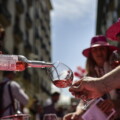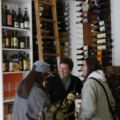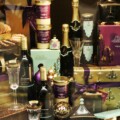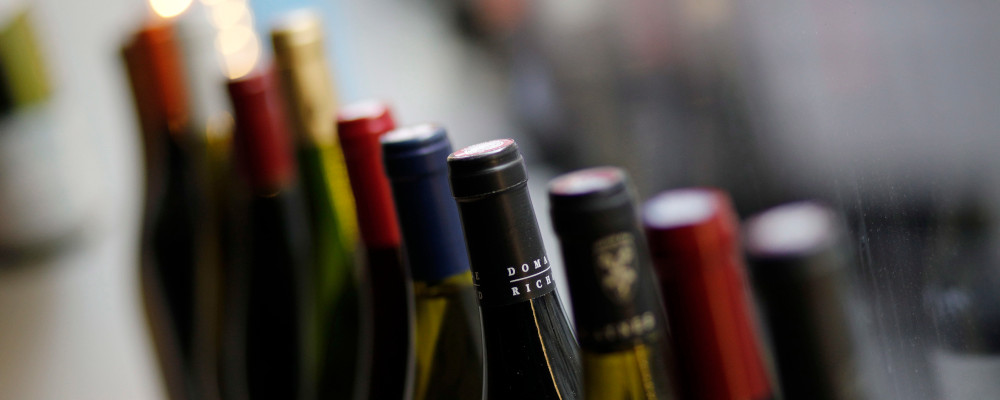“Sometimes the old ways are the best,” says an aging James Bond in Skyfall. If there ever was an audience for this message, it must be the wino crowd, particularly those of us contemplating Bondian middle-aged obsolescence. We can be a cranky bunch, suspicious of newfangled things, in pursuit of tastes and flavours from long-dead grapes that take years to slowly evolve.
And yet it’s difficult to imagine an area of human endeavour that has taken more advantage of the digital information revolution than the wine world. If one buys the most obscure bottle of wine made by a single row of vines that are only indigenous to a particular hillside in a former Soviet republic, there is still a very good chance that some byte of information will be brought forward by entering its name into a search engine.
That search result might be found at one of the great centres of the accumulation of digital wine knowledge over the last two decades or so. First called the Purple Pages it’s now named after its founder, jancisrobinson.com. There, Jancis Robinson OBE MW has assembled an elite team of oenological information gatherers that includes, for the better part of two decades, a fellow master of wine in senior editor Julia Harding.
From this virtual hive of vinous information has sprung a number of important works, made very much in the old bookish way, not least is the just published fifth and physical edition of The Oxford Companion to Wine. At just over a million words, this edition is by far the biggest yet, with over 4,498 entries (272 of which are new) from 267 contributors.
The Oxford Companion to Wine is a relative newcomer to the Oxford University Press stable of reference books. Robinson compiled and edited the first edition in 1994. That’s one hundred and ten years after the first Oxford English Dictionary, for instance. There’s some irony that it was launched just as the internet began to take off, though, given the Robinson media team’s proficiency at both old and new media, it probably makes a lot of sense.
In some circles (mine) ownership of an up-to-date OCW is an essential credential to being a serious wino. There are few topics undertaken for this column that are not referenced first in the OCW before being taken to Google. Likewise, a quick look-up in the big book is an essential pre-event ritual for any tasting or interview. What The Oxford Companion to Wine holds is authority. (Often also wit: it’s actually fun to read.)
The push for the fifth edition began in earnest two years ago during the dark days of the pandemic. Robinson handed over the reins of lead editorship and the brunt of the work to Harding. Robinson stayed as a titled editor and they recruited North American expert Tara Q Thomas as assistant editor. When I spoke to Julia Harding MW from her office in London over Zoom, she explained that the lead role chiefly meant ownership of the master spreadsheet of entries.
Harding told me the new edition of the OCW begins the day the finished one goes to the printer and the filing of notes into the possible updates begins.Harding also told me that a new, second edition of Wine Grapes (2012), which she wrote with Robinson and ampelographer José Vouillamoz, is “overdue” and being planned. The work of amassing as much of the world’s wine knowledge as possible into three kilograms (six pounds) of paper and cardboard reaches its frenzy in the twenty-four months before publication.
Anyone who’s ever had to work within a word count knows that a lot of hard work in editing is deciding what gets left out. Harding told me the OUP had given her a firm limit of no more than 65,000 more words in the fifth than in the fourth. Some things, she explained, were easy to take out to make room for new entries, like appellations that are no longer in use. They also tried to tighten up existing entries as much as possible. But a few, like “Coffeehouses”, were deemed no longer relevant enough to remain.
I asked Harding if she was often solicited by people who wanted whatever they did in the wine world put into The Oxford Companion to Wine. “Not really”, she answered, “it’s more that we get complaints about things left out.”
Harding explained that a “huge logistical challenge” of putting together the book, once the entries were decided, was less the selection of entries and more the management of the 267 expert contributors spread across the world. During the intense production period, she describes the editors’ work as “like being in a giant post office, with things coming and going constantly…it’s a massive booking in and booking out operation.”

The contributors to the OCW include wine writers and journalists, but also academics, winemakers, and trades who contribute as much out of a love for their field as anything. The problem is often, Harding explained sympathetically, that they know so much it’s difficult to pair down their entry to a word count appropriate for the reference book.
When I suggested that it was a mark of honour to be listed as a contributor to the book, and keen readers like me would go through the list to see who we recognized, she said she hoped that was the case. Harding added that it was certainly an honour to work with them.
Holiday shoppers should take note that the new edition of The Oxford Companion to Wine is an ideal present for those curious about wine, including one’s self. They might also take note that it costs eighty Canadian dollars, or maybe less if you find a deal. If the next edition is another eight years away, that’s like a ten-dollar-a-year subscription, or about two cents an entry, or about one one-hundredth of a cent per word. This is, to borrow a concept from wine criticism, a high price-to-quality ratio.
Recommended for You

In defence of wealth and money this Lunar New Year

Wine is but a dream

From Spain to Chile and beyond—what wines to watch for in 2026

Is there any holiday cheer in the wine world?




